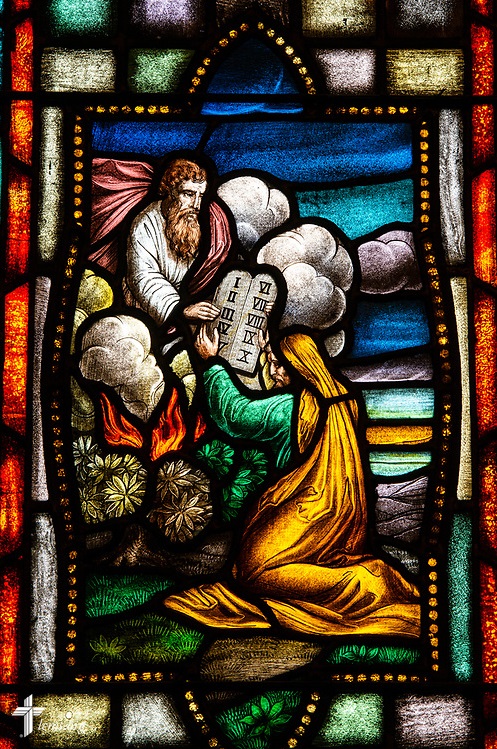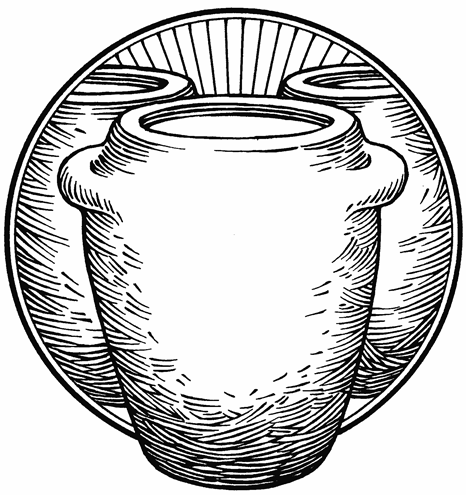Readings: Amos 9:11-15 | Romans 12:6-16 | John 2:1-11
Text: John 2:1-11
There are two Old Testament readings assigned for this Sunday. One is from Exodus 33:12-23. In that, we read:
18 Moses said, “Please show me your glory.” 19 And he said, “I will make all my goodness pass before you and will proclaim before you my name ‘The Lord.’ And I will be gracious to whom I will be gracious, and will show mercy on whom I will show mercy. 20 But,” he said, “you cannot see my face, for man shall not see me and live.” 21 And the Lord said, “Behold, there is a place by me where you shall stand on the rock, 22 and while my glory passes by I will put you in a cleft of the rock, and I will cover you with my hand until I have passed by. 23 Then I will take away my hand, and you shall see my back, but my face shall not be seen.”

Moses wanted to see God in His glory. The trouble is, sinful man cannot see Him and live. Moses was permitted to see his back.
Centuries have been spent by man seeking the face and the glory of God:
- Mystics seek God in emotional experiences.
- Jewish mystics have sought it through a devotion to the Torah: “Kabbalah takes man beyond the normative understanding of reason. It goes beyond the exoteric part of Torah and transcends normative existence. It uncovers many of the infinite layers of the secrets of life, of Creation, of the soul, of the heavenly spheres. It penetrates beyond the garments and the body of the Torah. It is the very core and soul of Torah, the ultimate revelation of Divinity – exposing the inner meaning, effects and purpose of Torah and mitzvahs.”1
- Spiritualists old and new seek to find God through their own devices—repetition, music, occasionally intoxication—all so they can achieve what even Moses was not permitted to see.
- For His part, God gave the Levitical code to keep sinful man at a safe distance. Through the blood of sacrifice, water of purification, the smoke of incense, the veil before the Ark—God covered His glory so that they would not perish.
Enter Jesus onto the scene. The Evangelist John comments that the “Word became flesh and tabernacled among us, and we have seen His glory, glory as of the only-begotten Son from the Father, full of grace and truth.” (John 1:14) It’s a new era for the glory of God and sinful man. The sin hasn’t gotten any better (that’s the delusion that humanity is advancing over generations). But while we were still as wicked as ever, Christ came and tabernacled in our midst. We certainly did not become more worthy of beholding the glory or face of God. The difference was the incarnation, and the gracious purpose of God to reconcile sinners to Himself.
At the Wedding at Cana, we hear:
On the third day there was a wedding at Cana in Galilee, and the mother of Jesus was there. 2 Jesus also was invited to the wedding with his disciples. 3 When the wine ran out, the mother of Jesus said to him, “They have no wine.” 4 And Jesus said to her, “Woman, what does this have to do with me? My hour has not yet come.” 5 His mother said to the servants, “Do whatever he tells you.” 6 Now there were six stone water jars there for the Jewish rites of purification, each holding twenty or thirty gallons. 7 Jesus said to the servants, “Fill the jars with water.” And they filled them up to the brim. 8 And he said to them, “Now draw some out and take it to the master of the feast.” So they took it. 9 When the master of the feast tasted the water now become wine, and did not know where it came from (though the servants who had drawn the water knew), the master of the feast called the bridegroom 10 and said to him, “Everyone serves the good wine first, and when people have drunk freely, then the poor wine. But you have kept the good wine until now.”
At first glance, it seems unrelated and trivial. So what? Jesus was invited to a friend’s wedding and saved them from a huge embarrassment. But in view of who Jesus is and what He has come to see, there is so much more to behold!

- The Lord is revealing Himself in His tabernacle among us in a new way. Where will people see God? Not just in the Temple. How will He show His glory? In this creative work which takes the old and fulfills it; which brings an abundance which man could never conjure up. To whom will He show His glory? Not simply to one man, but to His disciples who believe in Him!
- Under the Law, the glory of God had to be kept away from sinful man. When the Word became flesh, He made His intention clear that He wanted to take up a permanent dwelling among this fallen race.
- In the Old Testament Lesson we heard from Amos 9:11-15, the Lord says that this new era will be marked by “the mountains shall drip sweet wine, and all the hills shall flow with it”—an abundance of cause to rejoice and celebrate. It is a joy and peace that alcohol by itself couldn’t possibly give in its intoxicating properties. As God gave us wine to “gladden the heart of man” (Ps. 104:15), it’s only in seeing the Son of God’s mighty deeds that we know true elation.
So, this sign shows that God’s restoration has come. Jesus is the end of the waiting of the Law. He is the end of the divide between God and sinful man for all who believe.
This, the first of his signs, Jesus did at Cana in Galilee, and manifested his glory. And his disciples believed in him.

- Here is the message of Jesus at the wedding in Cana: He is there to show what Moses and Amos anticipated. The glory of the Lord would be seen by people from all nations, even the “remnant of mankind.” (Amos 9 quoted in Acts 15:17).
- His glory is manifest in human form (Phil. 2:8). Moses could not see, but here, the Lord is present in the midst of sinners. He is approached by His mother with a request. He is an ordinary guest, and yet the Lord in His glory.
- The glory of God is not something for man to seek out on our own deceitful terms. Rather it is what God makes known in His own timing.
Likewise, with the coming of Jesus in the flesh, and His glory manifest, the answer is no longer: “you cannot see my face, for man shall not see me and live” (Ex. 33:20). Now the face of God is visible in the Son of God [2 Cor. 3:18].
Jesus has come to hear our prayers, just as He did of His own mother, to bring us the joy of His salvation, and to make the face of God seen in our midst. This brings us full-circle back to something God gave during the ministry of the Levites. And it is with this unveiled face, and revealed glory, that the Divine Service ends with the Aaronic Benediction:
24The Lord bless you and keep you; 25the Lord make his face to shine upon you and be gracious to you; 26the Lord lift up his countenance upon you and give you peace. (Num. 6:24-26)
In the Name + of Jesus. Amen.



